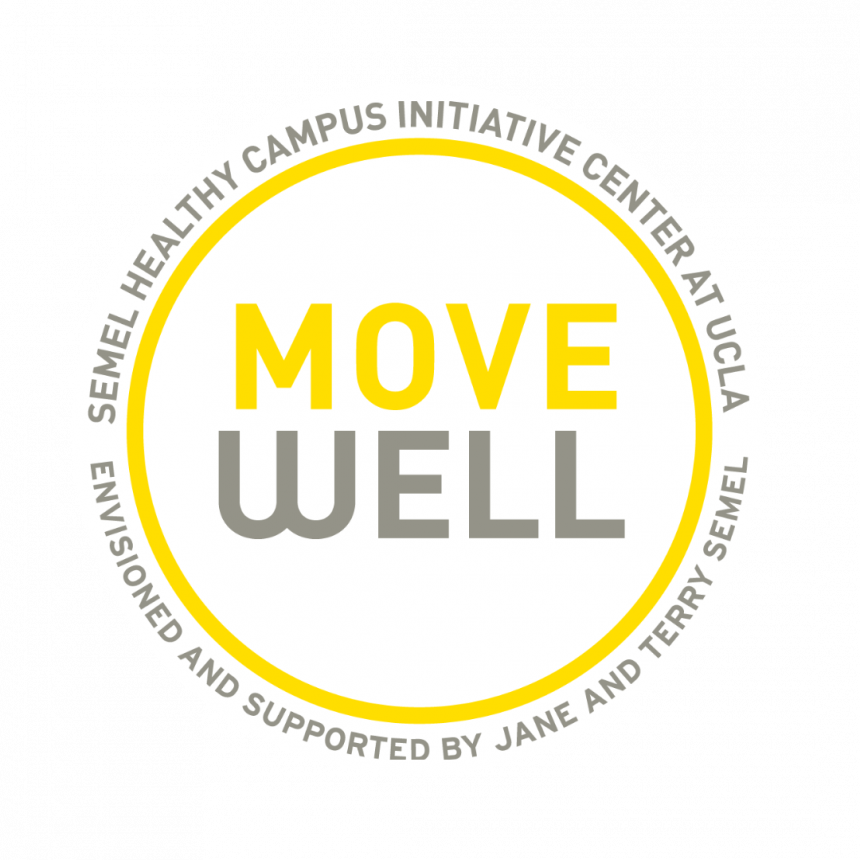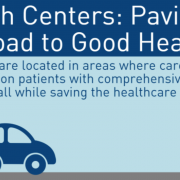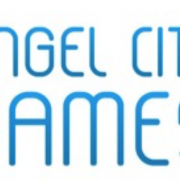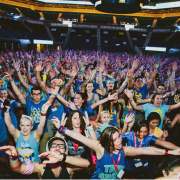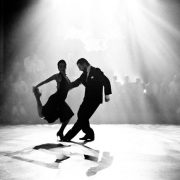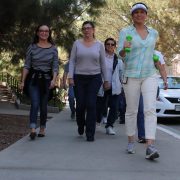Read on to learn more about these active (& activist!) intersections housed right here at UCLA.
From UCLA Art & Global Health Center Director/Professor David Gere:
As an activist and scholar situated at the productive border between the arts and public health, I view the arts as world-changing, with huge potential to advance global health. I work from this perspective because of what I experienced in San Francisco, serving as an arts critic at the height of the AIDS epidemic. Throughout the decade beginning in 1985, I witnessed artists stepping into horrible circumstances to intervene with little more than images and ideas as weapons. I wrote newspaper reviews on the work of artists confronting the stigma of AIDS. I marched alongside artists goading city, state, and federal officials to devote new resources for care and prevention—and I cheered as they achieved positive results. I grieved publically with artists as they grappled with our collective losses. Through this process I came to believe that any intervention designed to alleviate the suffering brought on by this epidemic was missing something powerful and transcendent if it did not involve the collaboration and creativity of artists.
That is why, in 2004, I founded MAKE ART/STOP AIDS, an international network of artists intervening in the AIDS epidemic. I have been extending and deepening this network ever since, from villages in West Bengal and Tamil Nadu, India, to complex megalopolises such as Los Angeles and Johannesburg. In 2006, I founded the UCLA Art & Global Health Center, dedicated to unleashing the transformative power of the arts to advance health in Los Angeles and around the world. The Art & Global Health Center brings together performance studies with public health, behavior change communication with medicine, social justice theory with practical application. The Center has established a major community presence in Los Angeles, especially through a large-scale collaboration with the Los Angeles Unified School District that allows us to reach 60,000 students annually. The Center contributes internationally as well, with projects currently operating in seven countries on four continents.
The work of the Art & Global Health Center is based on the theory that comprehensive health education can and should be engaging, entertaining, impactful, and transformative—because it improves self-efficacy and empowers participants to combat stigma surrounding STI’s/HIV, to engage in dialogue, to practice communication strategies, and to think critically on the impact of health decision-making. The arts clear space for the imagination, for broad and unencumbered thinking, and hence open up possibilities for personal transformation.
If you are having trouble envisioning what I mean, then please join me on Valentine’s Day (and the day after) to see for yourself.
UCLA Art & Global Health Center, with support from the Healthy Campus Initiative, Presents:
We’re Glad You Came
Valentine’s Day with the UCLA Sex Squad!
A FunCrazySexySmart Weekend of Performance, Parties and Art!
LIVE SHOWSDate(s): Fri, February 14, 2014 & Sat, February 15, 2014 Time: 6:00PM-7:30PM
Venue: Glorya Kaufman Hall, Room 200, UCLA
Ticket price: $6.00
Get Lei’d Luau
FREE Party, DJ, STI/HIV Testing Van, Games & Prizes, Food!
Fri, 2/14/14
12-1PM Bruin Plaza
Big Sexy Scavenger Hunt
Workshops, Games, Activist Art-Marking, Prizes
Sat, 2/15/14
1-3PM Kaufman Hall, Meet in Rainbow Lounge
FREE
Art Orgy
Activist Art Exhibition
Sat-Sun, 2/14-2/15
Kaufman Hall, Various Locations
FREE
Keep It Up!
Spicy Fundraiser, Dinner & Party to support the UCLA Sex Squad
Sat, 2/15/14
$20, includes dinner and age-appropriate drinks
8PM-11PM Kaufman Hall
Space is limited
For tickets contact Elisabeth, e.nails@arts.ucla, 310-825-6938
Bio: David Gere Professor, UCLA Department of World Arts and Cultures/DanceDirector, UCLA Art & Global Health Center
David Gere directs the UCLA Art & Global Health Center and is Professor of Arts Activism in the Department of World Arts and Cultures. He is also co-director (with Gideon Mendel) of Through Positive Eyes, a participatory photography project featuring people living with HIV/AIDS around the world. His book How to Make Dances in an Epidemic: Tracking Choreography in the Age of AIDS (University of Wisconsin Press) received the award for outstanding book publication from the Congress on Research in Dance. The book was also nominated for a Lambda Literary Award and received a special citation from the Society of Dance History Scholars and the De la Torre Bueno Prize. Gere studied music, dance, and Tamil in Madurai, Tamilnadu, on an Oberlin Shansi Fellowship 1980-82 and, in 2004, lived in Bangalore, India, on a research grant from the Fulbright Association, studying the ways in which artists are working in India to stop the AIDS epidemic. This led to the founding of MAKE ART/STOP AIDS, a network of artists throughout the world who are working to intervene in the AIDS epidemic. As part of MAKE ART/STOP AIDS, Through Positive Eyes currently features photography from Mexico City, Rio de Janeiro, Johannesburg, Los Angeles, Washington, DC, Mumbai, and Bangkok, with future plans for Kiev and Lagos.
